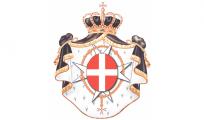
Madam Chair,
I would like to express my sincere appreciation for giving me the floor and allowing the Sovereign Order of Malta to actively contribute to this discussion, one which comes at a time more critical than ever.
The global movement for human rights and women’s empowerment has achieved much in recent decades. Increasingly women are fighting to take steps to challenge the practices that normalize gender inequality, sexual abuse and misconduct, exclusion and discrimination. A global outcry gave voice to acts that are traditionally shrouded in silence and neutralized by convention. Nevertheless, inequality and violence against women and girls remains prevalent. It is a major obstacle to the fulfillment of the human rights of women and girls and to the achievement of the 2030 Agenda for Sustainable Development.
Madam Chair,
A deeply entrenched nature of discrimination and gender-based violence affecting all generations, nationalities and communities remains deeply rooted in every society in all parts of the world. Still today an estimated one in three women worldwide will experience some type of physical or sexual abuse in her lifetime. Up to 70 percent of women have been beaten, coerced into sex or abused in some other way, a scale than underscores the urgency of response. This has become even more evident in some of the tragic episodes we are witnessing in the current migrant and refugee crises. With over 65 million people displaced worldwide, women and girls especially are one of the most vulnerable groups, facing discrimination and exploitation in their access to
resources, rights and representation. The risk for women and girls to become targets of sexual and gender-based violence, the most extreme form of gender inequality, is furthermore multiplied in emergencies. The Order highlighted this in their contribution to the Global Compact for Migration, calling on the international community to give special consideration in addressing the needs and acknowledging the heightened risks migrant women face. Humanitarian aid is about more than saving lives, it is to alleviate suffering and to restore human dignity.
Madam Chair,
The Order stands with the United Nations community to establish a new dynamic of change to improve the lives of women and girls everywhere. However, with a clear gap between what people in humanitarian emergencies experience and high-level discussions, we welcome especially the vast participation of grassroots organizations. The movement for gender equality must begin from the ground up. It is those small organizations that often play a crucial role in empowering women to demand that existing norms are put into practice and to help educate the children to positively impact the future generations. The Order strongly believes that education is key to empowerment, peace, self realization and equality. Along with our unparalleled number of qualified volunteers we stand ready to work with an international network and grassroots organizations on the ground to establish educational programs to achieve gender equality and ensure inclusive education for all.
As a sovereign entity, the Order of Malta remains independent and neutral, providing aid regardless of sex, race, ethnicity, or religious beliefs and has done so for over 900. In conjunction with its worldwide relief arm, Malteser International, the Order has assisted and given support to thousands of women victims of violence, promoted awareness campaigns and continuously actively engaged in improving the status and living conditions of women and children, often in regions where this aid is most needed. In addition the Order recently appointed two special Ambassadors to strengthen its commitments to help combat human trafficking, a phenomenon touching predominantly women and girls, at a diplomatic as well as an operational level. These Ambassadors are based in Geneva and Nairobi. We remain committed to implement humanitarian projects through the cooperation of local, national and international partnerships to advance the achievement of the Beijing Platform, especially the SDGs related to gender equality and the empowerment of women and girls.
Thank you Madam Chair.


